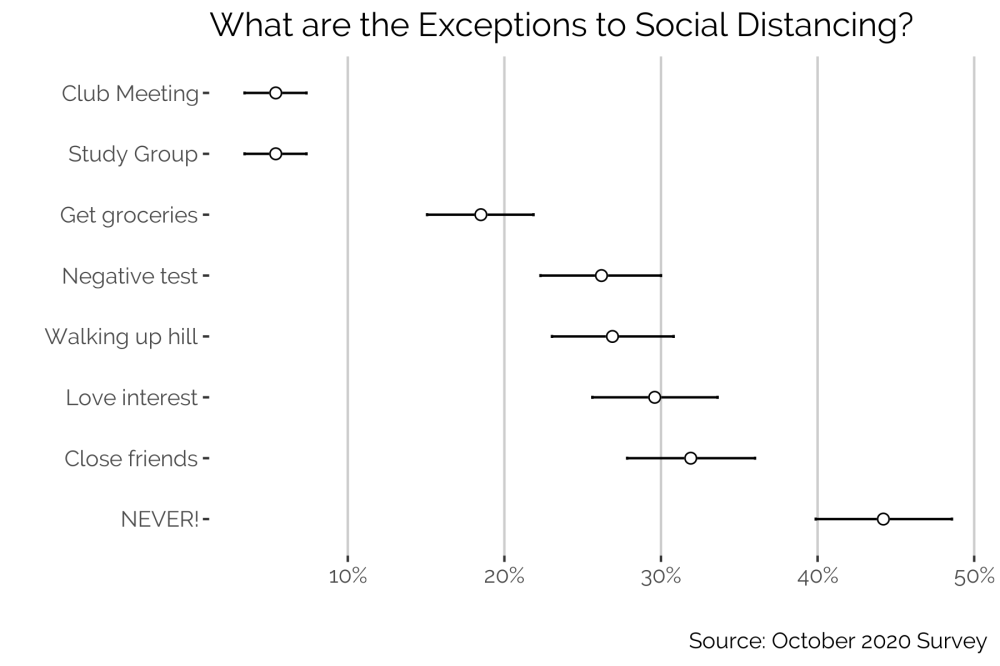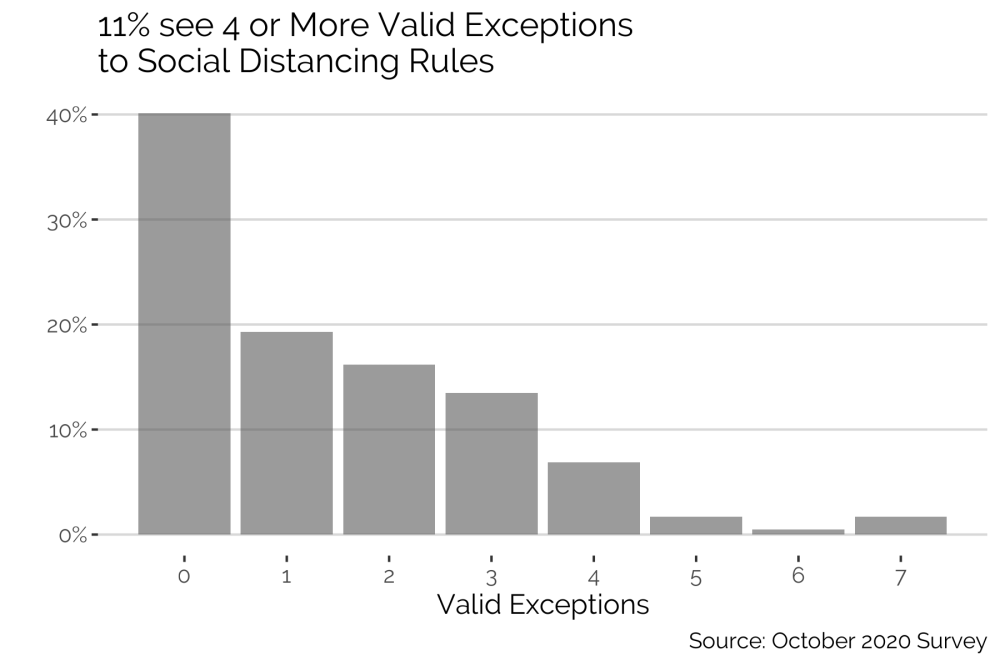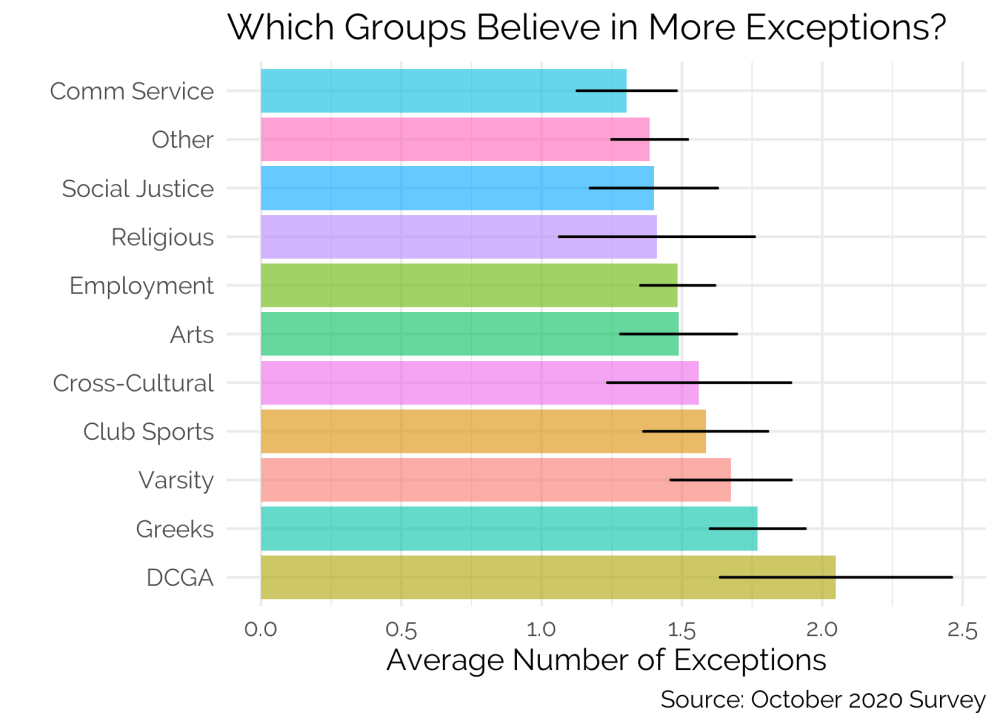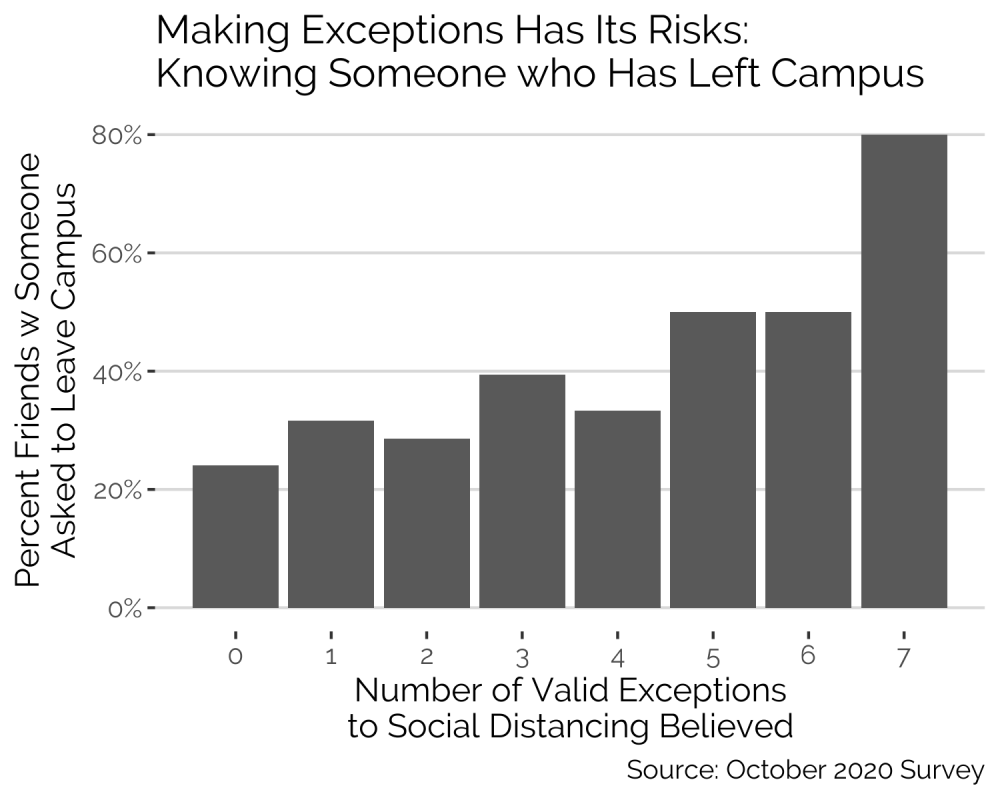By Paul A. Djupe
Denisonians have done an amazing job so far this year adhering to draconian, if necessary rules designed to keep the campus safe and enable the academic year to proceed. The rest of the country, not so much. Researchers are now suggesting that the Sturgis (South Dakota) motorcycle rally with roughly half a million attendees was likely responsible for the massive spike in Covid-19 cases across the upper midwest. But we also know that not all Denisonians are quite on the same page about social distancing.
We sought to quantify that by asking about the exceptions – what circumstances would permit breaking the community care agreement to maintain social distance? The results just in from our October 2020 survey of nearly 600 student respondents (thank you!) suggest the reasons are plentiful and diverse. Only 44 percent say that nothing justifies social interaction, so most believe that at least one exception is valid (the average is 1.4). As the figure below shows, very few (~6%) indicated that a club or study group justified meeting face to face, while nearly a third indicated a love interest or close friends validated social interaction, and 18 percent indicated that they could break social distancing guidelines in order to get groceries.

While a plurality see zero exceptions (see below), a majority does not and a small minority (~11%) see all sorts of exceptions (4+). A few percent even see all of the listed circumstances as valid exceptions to social distancing rules. Most students only see a few cases as exceptional and if they know the person has had a recent negative test, is that unreasonable?

“Exceptional thinking” can’t be evenly distributed across campus, can it? Surprisingly, it almost is. The figure below shows some differences across groups, but they are not large. In a survey “odd couple” moment, those involved in campus governance (which I labeled DCGA for convenience) and Greeks believe in the most exceptions (2 and 1.75, respectively). Everyone else is indistinguishable. We can layer on top of this that men are more likely to engage in exceptional thinking, adding about a quarter more exceptions to the tally. Perhaps exceptional thinking is more about individual psychology than group attributes.

There’s one major “but” to that conclusion, however: exceptional thinking appears to cluster among friends. This isn’t that hard to fathom since it takes more than one person to violate social distancing rules. How can we tell? Well, we asked whether the participant knew someone personally who was asked to leave campus for violating the care agreement. As the figure below shows, the rate of knowing someone asked to leave climbs drastically the more exceptional thinking they engage in. There aren’t many who see every scenario as justifying an exception, but among them 80% know someone personally who was asked to leave. The rate is just over 20% for those who see zero valid exceptions.

As we’ve learned about free speech on campus, “There, but for the grace of god, go we.” Denison has gotten lucky. The raw materials are clearly present for the pandemic to spread like wildfire on campus, but a combination of testing, social conduct rules, and firm implementation of them with a population that is limited to living on campus has prevented an outbreak. It wouldn’t take much, however, for a tight-knit campus community to reverse course. As cases continue to climb toward peak number 3 in the US and Ohio, we’re clearly not out of the woods yet.
Paul A. Djupe is a local cyclist who coincidentally has taught social science research methods and political science at Denison for millenia. He started onetwentyseven.blog a few years ago in a bid to subsidize collective action. He’s on Twitter and you should be too, along with your president.
I found this article (and many others on this site) fascinating, and I participated in the October 2020 survey. Do you ever post the anonymized raw results of the poll? As a poli sci student and a curious person, I’d be interested to take a look.
LikeLike
Hi Duncan. Glad you like what we’re trying to do here. I don’t post the raw data, but I’m always happy to share for a project. I (Djupe) use these data in classes, independent studies, and with writers for the blog. If you’re interested, let me know.
LikeLike